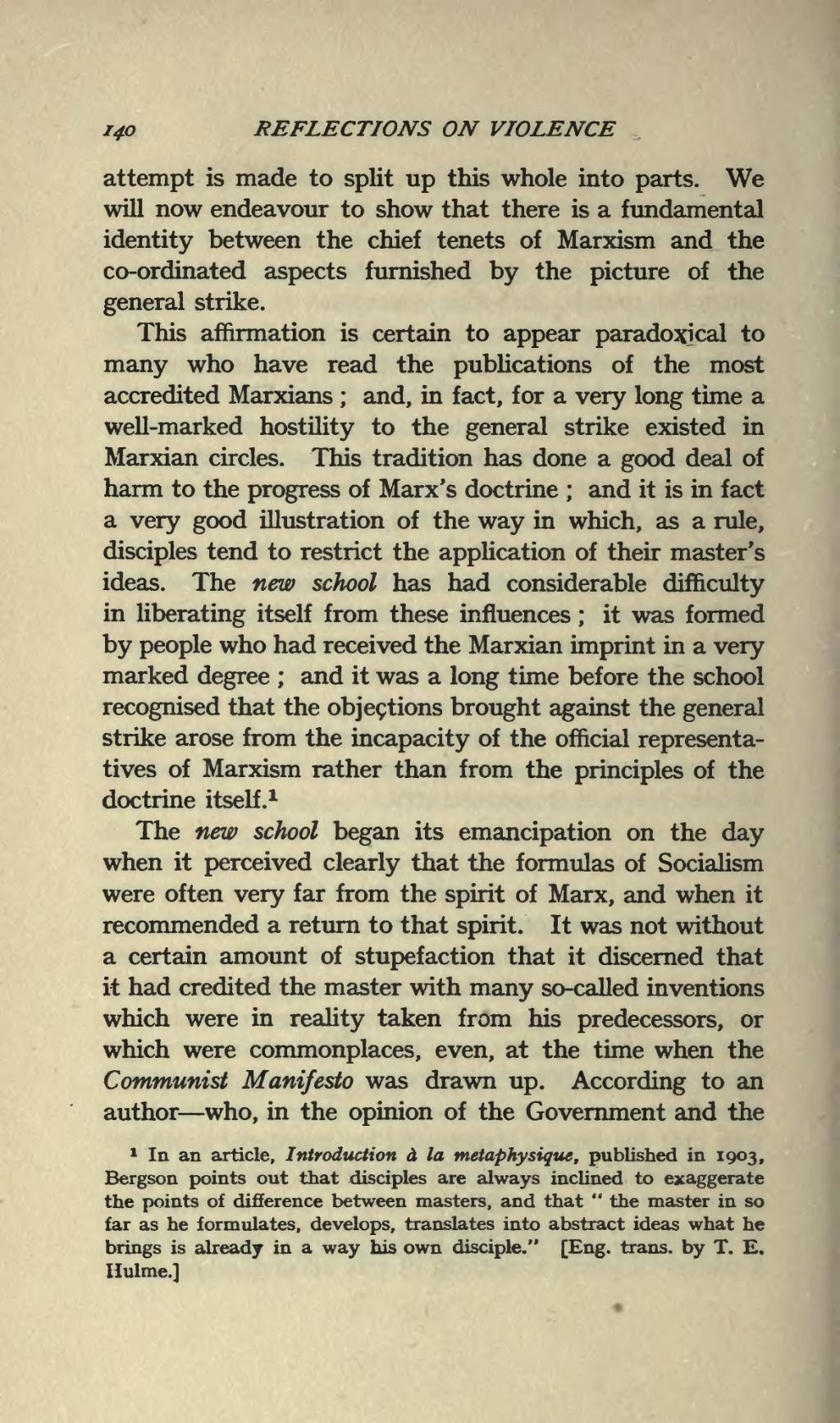attempt is made to split up this whole into parts. We will now endeavour to show that there is a fundamental identity between the chief tenets of Marxism and the co-ordinated aspects furnished by the picture of the general strike.
This affirmation is certain to appear paradoxical to many who have read the publications of the most accredited Marxians; and, in fact, for a very long time a well-marked hostility to the general strike existed in Marxian circles. This tradition has done a good deal of harm to the progress of Marx's doctrine; and it is in fact a very good illustration of the way in which, as a rule, disciples tend to restrict the application of their master's ideas. The new school has had considerable difficulty in liberating itself from these influences; it was formed by people who had received the Marxian imprint in a very marked degree; and it was a long time before the school recognised that the objections brought against the general strike arose from the incapacity of the official representatives of Marxism rather than from the principles of the doctrine itself.[1]
The new school began its emancipation on the day when it perceived clearly that the formulas of Socialism were often very far from the spirit of Marx, and when it recommended a return to that spirit. It was not without a certain amount of stupefaction that it discerned that it had credited the master with many so-called inventions which were in reality taken from his predecessors, or which were commonplaces, even, at the time when the Communist Manifesto was drawn up. According to an author—who, in the opinion of the Government and the
- ↑ In an article, Introduction à la metaphysique, published in 1903, Bergson points out that disciples are always inclined to exaggerate the points of difference between masters, and that "the master in so far as he formulates, develops, translates into abstract ideas what he brings is already in a way his own disciple." [Eng. trans, by T. E. Hulme.]
